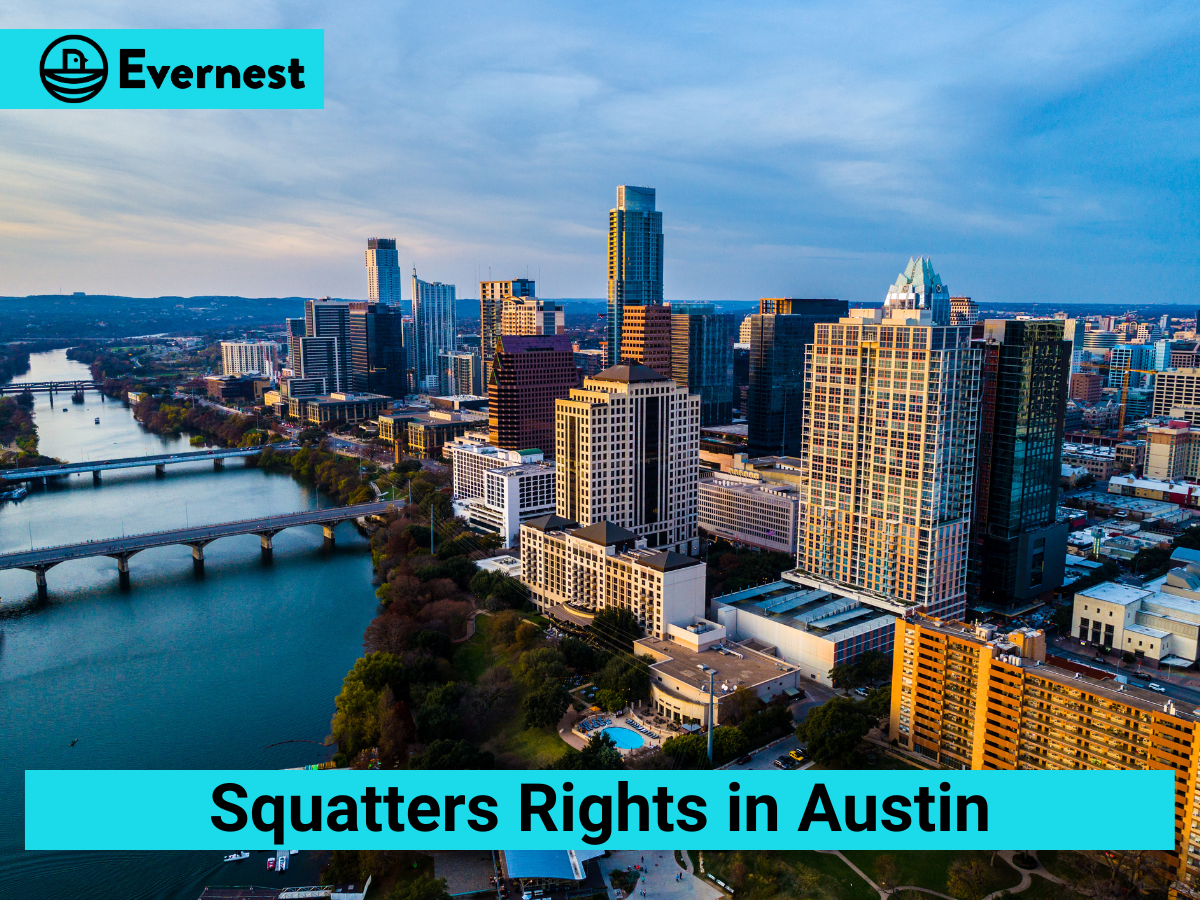As a rental property owner, you’ve probably heard your fair share of squatting horror stories.
But what exactly is squatting? And what are squatters’ rights in Austin, Texas?
In this article, we’ll explore the legal definition of squatting, delve into the history of squatters’ rights in Austin, outline how squatters' rights work, and discuss ways to protect your property from squatters.
Let’s dive in!
Disclaimer: The information provided in this blog does not, and is not intended to, constitute legal advice; instead, all information, content, and materials available in this blog are for general informational purposes only.
The Legal Definition of Squatting
Squatting is a complex legal issue that has been debated and analyzed by legal scholars and experts for years. The definition of squatting can vary from one jurisdiction to another, so it’s important to understand the laws and regulations that apply to your property.
In simple terms, squatting refers to the occupation of a property without the owner's permission. This can mean living in a vacant or abandoned property, or even taking up residence on a piece of land.
There are different types and degrees of occupation. Some cases may involve individuals who are simply seeking temporary shelter, while others may involve more organized groups who intentionally occupy properties with the intention of establishing long-term residences.
The Difference Between Trespassing and Squatting
The laws regarding trespassing and squatting can vary significantly depending on the jurisdiction. In some places, squatting may be considered a criminal offense, while in others, it may be treated as a civil matter.
The intent to establish residency is a key element in differentiating between trespassing and squatting. If an individual enters a property without permission but has no intention of living there, it is more likely to be considered trespassing. However, if the person intends to establish residency and takes steps to make the property their home, it would likely be classified as squatting.
Key Legal Terms — Adverse Possession
Adverse possession is a complex legal concept that has evolved over centuries. It is the legal principle that allows someone who has occupied a property for a certain length of time to potentially become the rightful owner. Its purpose is to balance the rights of property owners with the interests of individuals who have occupied a property for a relatively long time.
Time requirements for squatters’ rights vary by jurisdiction. Other requirements often include open and notorious occupation, exclusive possession, and paying property taxes. Some jurisdictions may have strict requirements and limitations, while others may have more lenient rules. Understanding the specific laws and regulations in a particular area is crucial for rental property owners in any market.
The History of Squatters’ Rights in Austin
The concept of squatters’ rights has a long and storied history in Austin, Texas. Let’s consider the historical context in which these rights emerged.
Early Squatting Laws in Texas
In the early days, when the state was still an independent republic, squatters played an important role in the settlement and development of the land. At that time, squatters were seen as pioneers who were willing to cultivate and improve previously unused or abandoned properties.
Modern Changes to Squatting Legislation
However, over the years, squatters’ rights laws evolved. The increase in urbanization and the rising value of real estate in Austin and across Texas led to changes in legislation.
Today, squatting is generally considered illegal unless the individual can demonstrate that they have met the requirements for adverse possession. Let’s dive into that now.
How Squatters’ Rights in Austin Work
One of the key aspects to understand regarding squatters’ rights in Austin is the process of adverse possession.
The Process of Adverse Possession
In Texas, the requirements for adverse possession include continuous and uninterrupted occupation of the property for a minimum of ten years, payment of property taxes, and a claim of right to the property.
Keep in mind that it is always advisable to consult with a legal professional to fully understand the adverse possession laws in your area.
Protecting Your Property from Squatters
As a property owner in Austin, you need to take proactive measures to protect your property from squatters. Here are a few strategies that can help safeguard your investment.
Regular Property Inspections
By regularly inspecting your property, you can identify signs of unauthorized occupation early on. Look for indications such as broken locks, signs of trespassing, or evidence of someone living on the premises without permission. By detecting these signs early, you can take appropriate action to prevent squatting.
Legal Actions to Evict Squatters
If you discover that squatters have occupied your property, it’s crucial to take immediate legal action.
You’ll need to follow specific eviction procedures to remove the squatters from your property. Consulting with an attorney specializing in property law can provide guidance and ensure the smooth eviction of squatters.
A local property management company may also be able to assist with a lawful eviction.
Squatters’ Rights in Austin and Landlord Responsibilities
For landlords in Austin, navigating the realm of squatters’ rights can be especially challenging. Understanding your legal obligations as a landlord is vital to avoid potential legal pitfalls.
Understanding Your Legal Obligations
As a landlord, it is your responsibility to ensure that your property is adequately secured and that unauthorized occupants are not allowed to take up residence. Regularly inspecting your property, promptly addressing any maintenance or security issues, and documenting any signs of unauthorized occupation are essential steps to fulfill your legal obligations as a property owner.
If you live out-of-state, or if you’re just not up to the task, a property management company can do this on your behalf.
Dealing with Squatters as a Landlord
If you discover that squatters have taken up residence in your property, it’s crucial to follow the appropriate legal procedures for eviction. Failure to do so can result in potential legal consequences for the landlord, including liability for violating squatters’ rights or trespassing laws. Seeking legal advice and guidance from professionals experienced in eviction processes can ensure that you navigate the situation properly.
Final Thoughts: Squatters’ Rights in Austin
By understanding squatters’ rights in Austin, property owners can take proactive steps to protect their investments and avoid potential legal issues. Being familiar with the requirements for adverse possession in your area is crucial. Remaining vigilant, conducting regular property inspections, and seeking legal guidance when needed will help you maintain the security and integrity of your property.
Looking for a Property Management Company in Austin?
Need help with squatters, marketing, maintenance, and more? Evernest Austin is here to help! Contact our local team to get started today.


